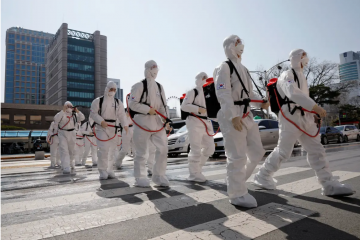
South Korea has been praised for its highly successful response in flattening the epidemic curve since its peak on February 23, 2020.
Korea’s response stands out as it hasn’t closed its borders, locked down towns, or implemented authoritarian regulations adopted by other developed countries. With the effective use of information and communications technology, the country has managed to test its citizens extensively and keep the economy running simultaneously, being held up as a role model for the rest of the world.
The KCDC (Korea Centers for Disease Control and Prevention), functioning as the command center and crossover between the government and the scientific community, released a report in August describing its response framework and the reasoning behind certain policies enacted.
With the government placing great importance on transparency to prevent further spread of the COVID-19, the country has decided to communicate and reveal the real-time geographic location of the infected people via free smartphone applications and websites.
Despite criticisms and questions about the issue of privacy, South Korean Foreign Minister Kang Kyung-Wha, persisted the policy, stating in an interview with DW news that “privacy is a very important human right, but it is not an absolute right.” Also, Korea’s robust health system, along with the first-ever implementation of the “drive-thru” system, allowed the rapid development of innovative and high-capacity testing centers, allowing the Korean medical team to conduct 15,000 to 20,000 tests per day.
Andy H., a senior at AISG who has witnessed Korea’s response to the COVID-19 pandemic, commented: “I thought the Korean government handled the epidemic very well. I was able to get tested for the COVID-19 without any delay or difficulties.” He further commented that he felt safe from the COVID-19 with constant reminders of important social-distancing protocols via text from the government.
Myunghan S., a sophomore at AISG, highlighted his gratitude for the Korean medical staff, commenting, “I would like to thank the Korean medical staff for their hard work. Without them, nobody could have been safe from the virus.”
As such, people’s appreciation and support for the medical staff led to the establishment of the “Thanks to -” challenge, where citizens and the medical staff thank each other for undertaking one’s pertinent duties to stop the virus.
However, Korea’s response to a global epidemic has not always been this efficacious or peaceful. In 2015, Korea failed to respond auspiciously to the outbreak of MERS (Middle East Respiratory Syndrome), leading to 38 deaths despite spending an astronomical figure on diagnosis and medicaments.
South Korea’s traumatic memory of MERS allowed the government’s leadership, medical staff’s diligence, and people’s active cooperation to converge and earn another proud nickname for the country: K-quarantine.
2 thoughts on “Everything You Need to Know About “K-quarantine””
Sorry, comments are closed.